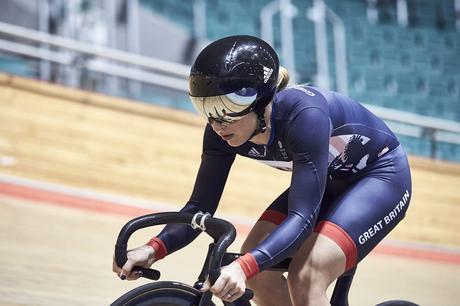
Sweet sixteen spells the end of sport for more than half of teenage girls, a study has found.
Losing interest, a lack of time and feeling like they weren't good enough means 53 per cent of girls give up sport once they finish school and compulsory PE lessons.
Others don't continue into adulthood because they had little or no encouragement from others, wanted to focus on other things or due to their friends giving up as well.
The study, of 1,000 girls aged 16-24 was commissioned by feminine care brand, Always, to launch its #LikeAGirl campaign.
It also emerged that while 88 per cent believe society encourages boys and men to take part in sport, just 35 per cent believe the same is true of girls and women.
British cycling star and Olympic gold medallist Laura Trott, who is partnering with Always for their #LikeAGirl campaign, said: "We all go through it, but puberty can be such challenging time for girls, you suddenly feel really self-conscious about lots of things and start thinking you can't or shouldn't do certain activities.
"I remember kids making fun of me for cycling and wearing a helmet and that would really knock my confidence.
"But playing sport taught me that by believing in myself, and never quitting, you can achieve great things.
"That's why I am proud to be supporting the Always #LikeAGirl mission to help stop the drop in confidence girls experience at puberty.
"Sport really is one of the strongest confidence building activities and as a female athlete competing in the Olympic Games I want to encourage and inspire girls everywhere to keep playing #LikeAGirl and never quit."
Losing interest or no longer finding it fun is the most common reason for girls not continuing sports past their teenage years, followed by a lack of time and becoming more self-conscious of their body during and after puberty.
Needing to focus more on their school work, job or other areas of their lives, lacking the confidence to believe they could succeed at sports and thinking there was no career or profession in it for them also feature in the top ten.
Worryingly, more than one in twenty young girls even claimed they were teased by others for their interest in sport, leading them to quit rather than continuing into later life.
Half of young girls believe becoming more self-conscious about their body during puberty prevents young women from playing sports once they finish school.
And almost a third put girls' dwindling participation in sports as they get older down to the fact there is little or no respect for females in sports.
Other factors behind the lack of girls playing sports are that they are being encouraged to do other things instead, the belief that there is no career path for women in sports and the lack of availability of sports for women in schools and communities.
One in four even believe a lack of media coverage on women's sports are a factor, along with a lack of encouragement from friends and family, no financial support and a lack of role models.
To help shed light on this issue, Always partnered with Academy Award-nominated documentary filmmaker Nanette Burstein to find out how girls feel about playing sport.
The new #LikeAGirl video, asked girls about their athletic experiences, the challenges and the benefits, what helped them stay in the game, or what led them to quit.
Hear their stories and be motivated by their passionate rallying call for all girls to keep playing by watching the Always Keep Playing #LikeAGirl video here: https://www.youtube.com/watch?v=Emawq64b0DU
Filmmaker Nanette Burstein said: "As someone who grew up playing sport, and also as the mother of a seven-year-old daughter, I know how important participation in sport can be in helping girls build the confidence and skills that will serve them throughout life."
Associate Brand Director and Always #LikeAGirl leader at Procter & Gamble, Michele Baeten added: "The Olympic Games is a time when - all around the world- female sports participation is elevated in the public eye, and for that reason, we could not think of a better moment to drive awareness of the critical role sport play in building girls' confidence.
"We will rally and unite Olympic athletes, the International and National Olympic Committees and other organisations, to spark a change and inspire a world in which every girl truly feels that she can play sport and will Keep Playing #LikeAGirl."
Always is inviting everybody to join in to rewrite the rules and keep girls in sport. Pledge that you'll Keep Playing #LikeAGirl and encourage others to do the same. Upload a picture, shoot a video or tweet using #LikeAGirl to show your support and inspire young girls everywhere to Keep Playing.
Top ten reasons girls stop playing sports- I lost interest or no longer found it fun
- A lack of time
- I become more self-conscious of my body
- I needed more focus on my school or job
- I wanted to focus on other things
- I lacked the confidence that I could succeed at sports
- I wasn't good enough
- A lack of encouragement
- It couldn't be a career/profession for me
- My friends quit playing


